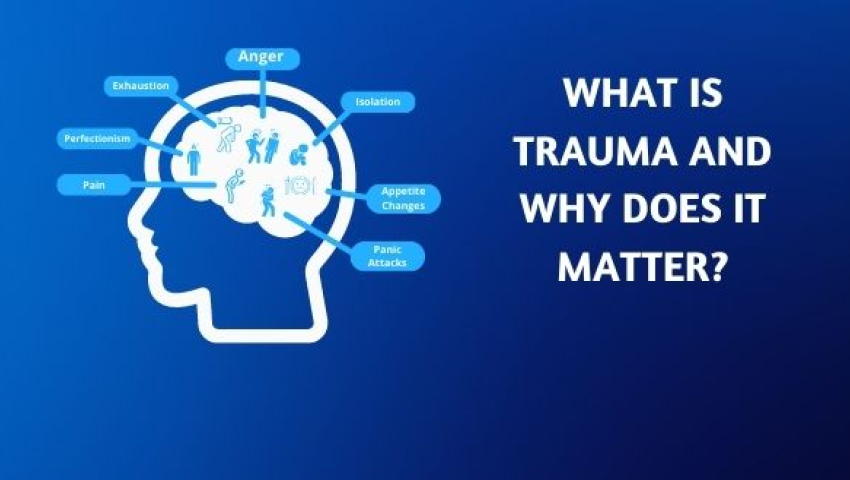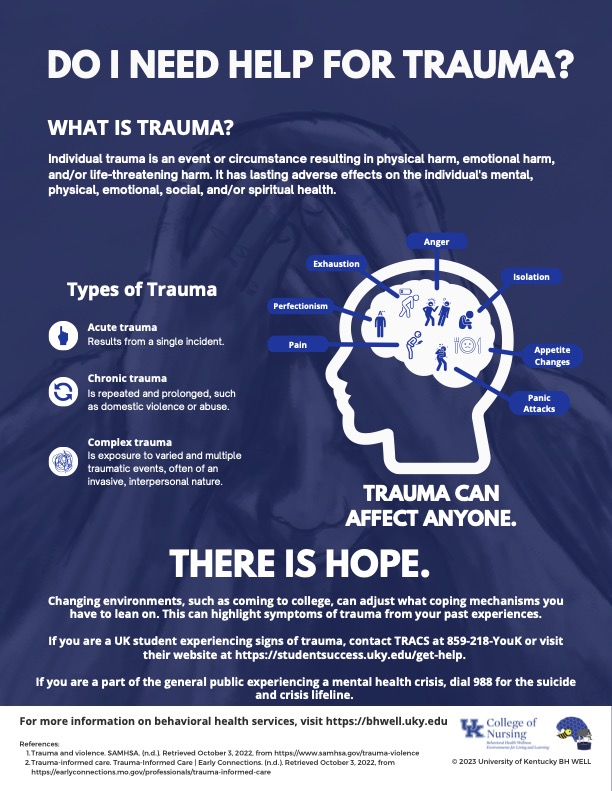
What Is Trauma and Why Does It Matter?
Individual trauma is an event or circumstance resulting in physical harm, emotional harm, and/or life-threatening harm. The event or circumstance has lasting adverse effects on the individual's mental, physical, emotional, social, and/or spiritual health. (1) Trauma can affect anyone regardless of age, gender, socioeconomic status, race, ethnicity, or sexual orientation.
There are three types of trauma: acute, chronic, and complex. Acute trauma results from a single incident. Chronic trauma is repeated and prolonged, such as domestic violence or abuse. Complex trauma is exposure to varied and multiple traumatic events, often of an invasive, interpersonal nature. (1) Any type of trauma may make it more difficult to participate in the responsibilities of everyday life.
Warning signs of trauma can include:
- Excessive anger or irritability
- Unusual startle reactions
- Significantly increased or reduced appetite
- Exhaustion
- Aggression (physical or verbal)
- Regular tardiness/absence from class or work
- Perfectionist or controlling behavior
- Difficulty concentrating
- Frequent headaches or stomach aches
- Low self-confidence
- Hoarding (snacks, school supplies)
- Risky behavior (substance use, sex)
- Panic attacks
- Alienation from peers (self-isolation or inability to relate/make friends)
If you or someone you love may be experiencing signs of trauma, there is hope. Contact the Center for Support and Intervention at (859) 257-3755.
BH WELL exists to promote behavioral health and wellness among individuals facing behavioral health challenges. Learn more about BH WELL at https://bhwell.uky.edu. Follow us on social media.

Trauma Infographic
Resources
1. Trauma and violence. SAMHSA. (n.d.). Retrieved October 3, 2022, from
https://www.samhsa.gov/trauma-violence